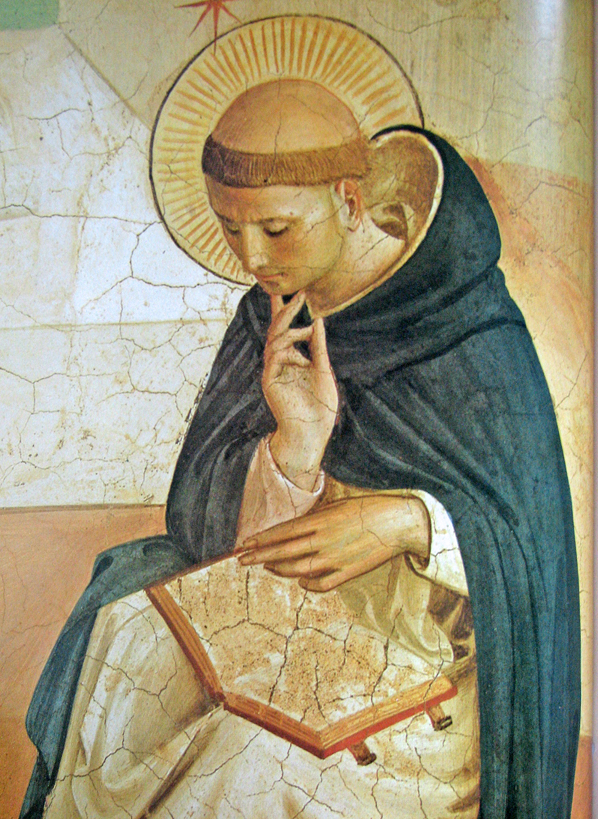The Secret Of The Rosary – Third Decade – Part 1

The surpassing merit of the holy Rosary as a meditation on the life and passion of our Lord Jesus Christ

{play}images/stories/audio/The secret of the Rosary – decade 3-1.mp3{/play}
Twenty-first Rose
The Fifteen Mysteries of the Rosary
A mystery is a sacred thing which is difficult to understand. The works of our Lord Jesus Christ are all sacred and divine because he is God and man at one and the same time. The works of the Blessed Virgin are very holy because she is the most perfect and the most pure of God’s creatures. The works of our Lord and of his blessed Mother can rightly be called mysteries because they are so full of wonders, of all kinds of perfections, and of deep and sublime truths, which the Holy Spirit reveals to the humble and simple souls who honour these mysteries.
The works of Jesus and Mary can also be called wonderful flowers, but their fragrance and beauty can only be appreciated by those who approach them, who breathe in their fragrance, and who discover their beauty by diligent and serious meditation.
St. Dominic divided the lives of our Lord and our Lady into fifteen mysteries, which stand for their virtues and their most important actions. These are fifteen pictures whose every detail must rule and inspire our lives. They are fifteen flaming torches to guide our steps throughout this earthly life; fifteen shining mirrors to help us to know Jesus and Mary, to know ourselves and to light the fire of their love in our hearts; fifteen fiery furnaces to consume us completely in their heavenly flames.
Our Lady taught Saint Dominic this excellent method of praying and ordered him to preach it far and wide so as to reawaken the fervour of Christians and to revive in their hearts a love for our Blessed Lord. She also taught it to Blessed Alan de la Roche and said to him in a vision, “When people say 150 Hail Marys, that prayer is very helpful to them and a most pleasing tribute to me. But they will do better still and will please me more if they say these salutations while meditating on the life, death, and passion of Jesus Christ, for this meditation is the soul of this prayer.” For the Rosary said without the meditation on the sacred mysteries of our salvation would almost be a body without a soul, excellent matter, but without the form, which is the meditation, and which distinguishes it from other devotions.
The first part of the Rosary contains five mysteries: the first, the Annunciation of the archangel Gabriel to our Lady; the second, the Visitation of our Lady to Saint Elizabeth; the third, the Nativity of Jesus Christ; the fourth, the Presentation of the Child Jesus in the Temple and the purification of the Blessed Virgin; the fifth, the Finding of Jesus in the Temple among the doctors.
These are called the Joyful Mysteries because of the joy which they gave to the whole universe. Our Lady and the angels were overwhelmed with joy the moment the Son of God became incarnate. Saint Elizabeth and St. John the Baptist were filled with joy by the visit of Jesus and Mary. Heaven and earth rejoiced at the birth of the Saviour. Holy Simeon felt great consolation and was filled with joy when he took the holy child into his arms. The doctors were lost in admiration and wonderment at the replies which Jesus gave; and who could express the joy of Mary and Joseph when they found Jesus after three days’ absence?
The second part of the Rosary is also composed of five mysteries, which are called the Sorrowful Mysteries because they show us our Lord weighed down with sadness, covered with wounds, laden with insults, sufferings and torments.
The first of these mysteries is our Lord’s prayer and his Agony in the Garden of Olives; the second, his Scourging; the third, his being Crowned with thorns; the fourth, his Carrying of the Cross; the fifth, his Crucifixion and death on Calvary.
The third part of the Rosary contains five more mysteries, which are called the Glorious Mysteries, because when we say them we meditate on Jesus and Mary in their triumph and glory. The first is the Resurrection of Jesus; the second, his Ascension into heaven; the third, the Descent of the Holy Spirit upon the apostles; the fourth, our Lady’s Assumption in glory; the fifth, her Coronation.
Such are the fifteen fragrant flowers of the mystical Rose-tree, on which devout souls linger, like discerning bees, to gather their nectar and make the honey of a solid devotion.
Twenty-second Rose
The Meditation of the Mysteries makes us resemble Jesus
The chief concern of the Christian should be to tend to perfection. “Be faithful imitators of God, as his well-beloved children” (Eph. 5:1), the great Apostle tells us. This obligation is included in the eternal decree of our predestination, as the one and only means prescribed by God to attain everlasting glory.
Saint Gregory of Nyssa makes a delightful comparison when he says that we are all artists and that our souls are blank canvasses which we have to fill in. The colours which we use are the Christian virtues, and the original which we have to copy is Jesus Christ, the perfect living image of God the Father. Just as a painter who wants to do a life-like portrait places the model before his eyes and looks at it before making each stroke, so the Christian must always have before his eyes the life and virtues of Jesus Christ, so as never to say, think or do anything which is not in conformity with his model.
It was because our Lady wanted to help us in the great task of working out our salvation that she ordered Saint Dominic to teach the faithful to meditate upon the sacred mysteries of the life of Jesus Christ. She did this, not only that they might adore and glorify him, but chiefly that they might pattern their lives and actions on his virtues.
Children copy their parents through watching them and talking to them, and they learn their own language through hearing them speak. An apprentice learns his trade through watching his master at work; in the same way the faithful members of the Confraternity of the Holy Rosary can become like their divine Master if they reverently study and imitate the virtues of Jesus which are shown in the fifteen mysteries of his life. They can do this with the help of his grace and through the intercession of his blessed Mother.
Long ago, Moses was inspired by God to command the Jewish people never to forget the graces which had been showered upon them. The Son of God has all the more reason to command us to engrave the mysteries of his life, passion and glory upon our hearts and to have them always before our eyes, since each mystery reminds us of his goodness to us in some special way and it is by these mysteries that he has shown us his overwhelming love and desire for our salvation. “Oh, all you who pass by, pause a while,” he says, “and see if there has ever been any sorrow like to the sorrow I have endured for love of you. Be mindful of my poverty and humiliations; think of the gall and wormwood I took for you in my bitter passion” (Lam. 1:12; 3:19).
These words and many others which could be given here should be more than enough to convince us that we must not only say the Rosary with our lips in honour of Jesus and Mary, but also meditate upon the sacred mysteries while we are saying it.
Twenty-third Rose
The Rosary is a Memorial of the Life and Death of Jesus
Jesus Christ, the divine spouse of our souls and our very dear friend, wishes us to remember his goodness to us and to prize his gifts above all else. Whenever we meditate devoutly and lovingly upon the sacred mysteries of the Rosary, he receives an added joy, as also do our Lady and all the saints in heaven. His gifts are the most outstanding results of his love for us and the richest presents he could possibly give us, and it is by virtue of such presents that the Blessed Virgin herself and all the saints are glorified in heaven.
One day Blessed Angela of Foligno begged our Lord to let her know by which religious exercise she could honour him best. He appeared to her nailed to his cross and said, “My daughter, look at my wounds.” She then realized that nothing pleases our dear Lord more than meditating upon his sufferings. Then he showed her the wounds on his head and revealed still other sufferings and said to her, “I have suffered all this for your salvation. What can you ever do to return my love for you?”
The holy sacrifice of the Mass gives infinite honour to the most Blessed Trinity because it represents the passion of Jesus Christ and because through the Mass we offer to God the merits of our Lord’s obedience, of his sufferings, and of his precious blood. All the heavenly court also receive an added joy from the Mass. Several doctors of the Church, including St. Thomas, tell us that, for the same reason, all the blessed in heaven rejoice in the communion of the faithful because the Blessed Sacrament is a memorial of the passion and death of Jesus Christ, and that by means of it men share in its fruits and work out their salvation.
Now the holy Rosary, recited with the meditation on the sacred mysteries, is a sacrifice of praise to God for the great gift of our redemption and a holy reminder of the sufferings, death and glory of Jesus Christ. It is therefore true that the Rosary gives glory and added joy to our Lord, our Lady and all the blessed, because they cannot desire anything greater, for the sake of our eternal happiness, than to see us engaged in a practice which is so glorious for our Lord and so salutary for ourselves.
The Gospel teaches us that a sinner who is converted and who does penance gives joy to all the angels. If the repentance and conversion of one sinner is enough to make the angels rejoice, how great must be the happiness and jubilation of the whole heavenly court and what glory for our Blessed Lord himself to see us here on earth meditating devoutly and lovingly on his humiliations and torments and on his cruel and shameful death! Is there anything that could touch our hearts more surely and bring us to sincere repentance?
A Christian who does not meditate on the mysteries of the Rosary is very ungrateful to our Lord and shows how little he cares for all that our divine Saviour has suffered to save the world. This attitude seems to show that he knows little or nothing of the life of Jesus Christ, and that he has never taken the trouble to find out what he has done and what he went through in order to save us. A Christian of that kind ought to fear that, not having known Jesus Christ or having put him out of his mind, Jesus will reject him on the day of judgment with the reproach, “I tell you solemnly, I do not know you” (Mt. 25:12).
Let us meditate, then, on the life and sufferings of our Saviour by means of the holy Rosary; let us learn to know him well and to be grateful for all his blessings, so that, on the day of Judgment, he may number us among his children and his friends.
Twenty-fourth Rose
Meditation on the Mysteries of the Rosary is a great means of perfection
The saints made our Lord’s life the principal object of their study; they meditated on his virtues and his sufferings, and in this way arrived at Christian perfection.
Saint Bernard began with this meditation and he always kept it up. “At the very beginning of my conversion,” he said, “I made a bouquet of myrrh fashioned from the sorrows of my Saviour. I placed this bouquet upon my heart, thinking of the lashes, the thorns and the nails of his passion. I applied my whole mind to the meditation on these mysteries every day.”
This was also the practice of the holy martyrs; we admire how they triumphed over the most cruel sufferings. Where could this admirable constancy of the martyrs come from, says Saint Bernard, if not from the wounds of Jesus Christ, on which they meditated so frequently? Where was the soul of these generous athletes when their blood gushed forth and their bodies were wracked with cruel torments? Their soul was in the wounds of Christ and those wounds made them invincible.
During her whole life, our Saviour’s holy Mother was occupied in meditating on the virtues and the sufferings of her Son. When she heard the angels sing their hymn of joy at his birth and saw the shepherds adore him in the stable, her heart was filled with wonder and she meditated on all these marvels. She compared the greatness of the Word incarnate to the way he humbled himself in this lowly fashion; the straw of the crib, to his throne in the heart of his Father; the might of God, to the weakness of a child; his wisdom, to his simplicity.
Our Lady said to Saint Bridget one day, “Whenever I used to contemplate the beauty, modesty, and wisdom of my Son, my heart was filled with joy; and whenever I considered his hands and feet which would be pierced with cruel nails, I wept bitterly and my heart was rent with sorrow and pain.”
After our Lord’s Ascension, our Blessed Lady spent the rest of her life visiting the places that had been hallowed by his presence and by his sufferings. There, she meditated on his boundless love and on his terrible passion.
Saint Mary Magdalene continually performed the same religious exercises during the last thirty years of her life, when she lived at Sainte-Baume.
Saint Jerome tells us that this was the devotion of the faithful in the early centuries of the Church. From all the countries of the world they came to the Holy Land to engrave more deeply on their hearts a great love and remembrance of the Saviour of mankind by seeing the places and things he had made holy by his birth, his work, his sufferings, and his death.
All Christians have but one faith and adore one and the same God, and hope for the same happiness in heaven; they know only one mediator, who is Jesus Christ; all must imitate their divine model, and in order to do this they must meditate on the mysteries of his life, of his virtues and of his glory.
It is a great mistake to think that only priests and religious and those who have withdrawn from the turmoil of the world are supposed to meditate upon the truths of our faith and the mysteries of the life of Christ. If priests and religious have an obligation to meditate on the great truths of our holy religion in order to live up to their vocation worthily, the same obligation is just as much incumbent on the laity, because of the fact that every day they meet with spiritual dangers which might cause them to lose their souls. Therefore they should arm themselves with the frequent meditation on the life, virtues, and sufferings of our Blessed Lord, which are presented to us in the fifteen mysteries of the holy Rosary.
Twenty-fifth Rose
The Riches of Holiness contained in the Prayers and Meditations of the Rosary
Never will anyone be able to understand the marvellous riches of sanctification which are contained in the prayers and mysteries of the holy Rosary. This meditation on the mysteries of the life and death of our Lord Jesus Christ is the source of the most wonderful fruits for those who make use of it.
Today people want things that strike and move them, that leave deep impressions on the soul. Now has there ever been anything in the history of the world more moving than the wonderful story of the life, death, and glory of our Saviour which is contained in the holy Rosary? In the fifteen tableaux, the principal scenes or mysteries of his life unfold before our eyes. How could there be any prayers more wonderful and sublime than the Lord’s Prayer and the Ave of the angel? All our desires and all our needs are found expressed in these two prayers.
The meditation on the mysteries and prayers of the Rosary is the easiest of all prayers, because the diversity of the virtues of our Lord and the different situations of his life which we study, refresh and fortify our mind in a wonderful way and help us to avoid distractions. For the learned, these mysteries are the source of the most profound doctrine, while simple people find in them a means of instruction well within their reach.
We need to learn this easy form of meditation before progressing to the highest state of contemplation. That is the view of Saint Thomas Aquinas, and the advice that he gives when he says that, first of all, one must practice on a battlefield, as it were, by acquiring all the virtues of which we have the perfect model in the mysteries of the Rosary; for, says the learned Cajetan, that is the way we arrive at a really intimate union with God, since without that union contemplation is nothing but an illusion which can lead souls astray.
If only the Illuminists or the Quietists of these days had followed this piece of advice, they would never have fallen so low or caused such scandals among spiritual people. To think that it is possible to say prayers that are finer and more beautiful than the Our Father and the Hail Mary is to fall a prey to a strange illusion of the devil, for these heavenly prayers are the support, the strength and the safeguard of our souls.
I admit it is not always necessary to say them as vocal prayers and that interior prayer is, in a sense, more perfect than vocal. But believe me, it is really dangerous, not to say fatal, to give up saying the Rosary of your own accord under the pretext of seeking a more perfect union with God. Sometimes a soul that is proud in a subtle way and who may have done everything that he can do interiorly to rise to the sublime heights of contemplation that the saints have reached may be deluded by the noonday devil into giving up his former devotions which are good enough for ordinary souls. He turns a deaf ear to the prayers and the greeting of an angel and even to the prayer which God has composed, put into practice, and commanded: “Thus shall you pray: Our Father” (Mt. 6:9). Having reached this point, such a soul drifts from illusion to illusion, and falls from precipice to precipice.
Believe me, dear brother of the Rosary Confraternity, if you genuinely wish to attain a high degree of prayer in all honesty and without falling into the illusions of the devil so common with those who practice mental prayer, say the whole Rosary every day, or at least five decades of it. (Montfort adds a footnote quoting the following text taken from Saint Catherine of Siena in her Revelations: “Quicumque justus vel peccator recurrit ad Eam cum devota reverentia, nullo modo decipitur vel devorabitur ab infernali daemone.” Anyone, either just or sinner, who turns to her with reverence and devotion will be neither deceived nor devoured by the demon of hell.)
If you have already attained, by the grace of God, a high degree of prayer, keep up the practice of saying the holy Rosary if you wish to remain in that state and by it to grow in humility. For never will anyone who says his Rosary every day become a formal heretic or be led astray by the devil. This is a statement which I would sign with my blood.
On the other hand, if God in his infinite mercy draws you to himself as forcibly as he did some of the saints while saying the Rosary, make yourself passive in his hands and let yourself be drawn towards him. Let God work and pray in you and let him say your Rosary in his way, and that will be sufficient for the day.
But if you are still in the state of active contemplation or the ordinary prayer of quietude, of the presence of God, affective prayer, you have even less reason for giving up the Rosary. Far from making you lose ground in mental prayer or stunting your spiritual growth, it will be a wonderful help to you. You will find it a real Jacob’s ladder with fifteen rungs by which you will go from virtue to virtue and from light to light. Thus, without danger of being misled, you will easily arrive at the fullness of the age of Jesus Christ.






